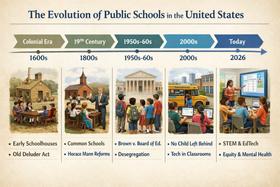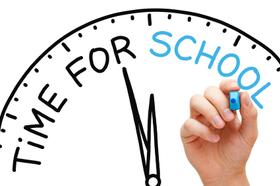High school students are faced with the daunting task of making choices that will have momentous consequences on the remainder of their lives. They must choose whether to pursue higher education at a four-year college or university, begin their studies at a two-year community college, start a vocational training program, or enter the workforce directly after high school.
For those students who decide they want to pursue a college education, the choices to be made only multiply: students must decide how to present themselves in the optimal light on college applications, which colleges to apply to, and which college to ultimately attend.
Fortunately, most public high schools have a “guidance office” and guidance counselors who are given the job of helping students to navigate the sea of tough decisions that must be made towards the end of high school.
But are high school students getting the help and advice that they need from the guidance counselors at public schools? A new study released by the nonprofit research organization Public Agenda suggests that most people who have graduated from public high schools in the last decade do not feel that their school guidance counselors provided them with any meaningful advice.
This video shows a demonstration interview by a guidance counselor.
The Problems with the Current High School Guidance System
Lack of Personal Attention
In its response to the report, the American School Counselor Association noted that although their organization, along with the American Psychological Association and the American Medical Association, recommend a ratio of 250 students for every high school guidance counselor, the national average is 460 students for each high school guidance counselor. According to the New York Times, the ratio of students per counselor is the worst in California’s public schools, where each high school guidance counselor is responsible for an average of almost 1,000 students.
Such ratios make it almost inevitable that students will feel like they don’t receive the personal attention they need from their high school guidance counselors. And indeed, 48% of the former high school students polled in the Public Agenda survey indicated that they felt like their high school guidance counselors saw them as “just another face in the crowd.”
Counselors Wearing Too Many Hats?
The troubled state of high school guidance counseling may also be due to the fact that counselors are expected to perform too many different roles in a typical public school, which does not leave them enough time to adequately address the needs of students who are considering applying to college. The Public Agenda researchers note that guidance counselors are not able to devote all of their energy to advising students on career and educational paths because “much of their effort is devoted to discipline issues and sorting out scheduling and other administrative mix-ups within the high school.”
This video offers a look at a counselor's day.
The Consequences: What Happens for Students Who Don’t Get Meaningful Counseling?
More Likely to Drop Out of College
The Public Agenda study indicates that nearly one in five of the students who declared that they felt like “just another face in the crowd” to their high school guidance counselors ended up leaving college without completing a degree. These former “faces in the crowd” were more likely to leave college without completing a degree than were their peers who reported that their high school counselors had made an effort to “really get to know” them and to “treat [them] as individuals.”
Less Likely to Receive Financial Aid
Only 41% of students who felt they had just been a “face in the crowd” to their high school guidance counselors received financial aid to help defray the cost of a college education. In contrast, 51% of students who felt their guidance counselors had made an effort to know them as individuals received financial aid.
What Can Be Done
Teachers Can Help
One positive finding of the Public Agenda report is that coaches and teachers often fill the role that guidance counselors do not in contemporary high schools. Two-thirds of survey respondents said that they had a teacher in high school who “really took an interest in them personally and encouraged them to go to college.” And three-fourths of survey respondents said they had a teacher or coach who “really inspired them and motivated them to do their best.”
Provide More Support for School Counselors
In their response to the report, the American School Counselor Association said that they hoped that this report would “highlight the need for supporting school counselors so they can be effective” rather than being used as evidence that school counselors should be eliminated.
Indeed, the report does seem to show that the problem is not so much that guidance counselors are ineffective, but rather they are often unable to do their jobs for a large number of students to whom they are assigned.
Questions? Contact us on Facebook. @publicschoolreview















